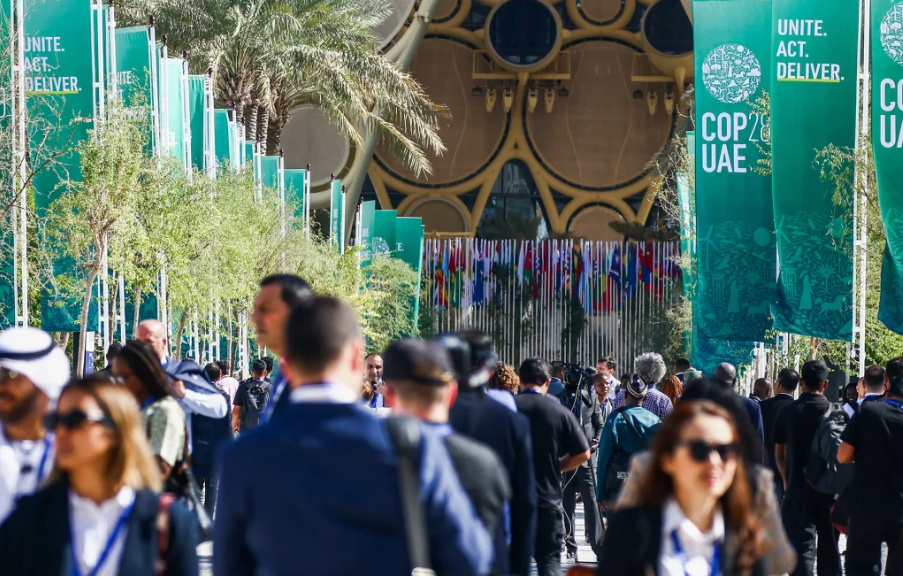Taylah Bland , Senior Program Officer for the China Climate Hub, Asia Society Policy Institute
Dec 31, 2024
As the impacts of climate change intensify, the U.S. and China must shift focus to adaptation, with opportunities for cooperation through subnational partnerships and a competitive model to assist vulnerable nations. This approach offers a path forward for both countries to lead global efforts in climate action.
Tang Xinhua, Associate Researcher, Tsinghua University’s Institute of International Relations
Dec 23, 2024
As 2025 approaches, the global climate crisis is set to intensify, and the global climate governance process may enter a period of hardship and turmoil. In the face of new challenges, developing countries must unite to protect our shared planet.

Sebastian Contin Trillo-Figueroa, Geopolitics Analyst in EU-Asia Relations and AsiaGlobal Fellow, The University of Hong Kong
Nov 08, 2024
Energy innovation seems to be one of the 21st Century's greatest frontiers, and well as one of the greatest challenges. In order to build sustainable technology and increase independence, why does Europe absolutely need China?
Sebastian Contin Trillo-Figueroa, Geopolitics Analyst in EU-Asia Relations and AsiaGlobal Fellow, The University of Hong Kong
May 07, 2024
The EU’s latest moves in the green technology sector may inadvertently strain China-EU relations, potentially impeding progress toward mutual environmental objectives and causing detriment to both parties.

Tang Xinhua, Associate Researcher, Tsinghua University’s Institute of International Relations
Jan 02, 2024
Recent developments threaten to undermine the UN’s multilateral governance platform, which could lead to a hollowing out or fragmentation in the Paris Agreement’s implementation. An intensified debate is coming over ideology, justice and responsibility.
Kathryn Neville, Masters student, Johns Hopkins University School of Advanced International Studies
Dec 14, 2023
The world's most notorious polluter pledged to use more LNG, and it could be their smartest move for the environment yet.
Brian Wong, Assistant Professor in Philosophy and Fellow at Centre on Contemporary China and the World, HKU and Rhodes Scholar
Kevin Zongzhe Li, Master in Public Policy Candidate at Harvard Kennedy School, Research Assistant at Harvard’s Belfer Center for Science and International Affairs
Nov 27, 2023
Southeast Asia is primed for major growth across multiple fronts in the near future - and it might be the perfect staging ground for U.S.-China cooperation, if the cross-Pacific powers are willing to set aside their differences.
Peter Sies, Master, School of Advanced International Studies at Johns Hopkins University
Sep 20, 2023
After years of pursuing global emission reductions through multilateral agreements, more confrontational tides in international relations, intensified by U.S.-China rivalry, might unexpectedly drive stronger climate action. A great power competition for leadership in green technology and future market dominance could ultimately favor the climate.
He Wenping, Senior Research Fellow, Charhar Institute and West Asia and Africa Studies Institute of the China Academy of Social Sciences
Jul 28, 2023
A few visits by senior U.S. officials to China will not solve the thorny problems that exist between the two great powers. Climate can be looked at separately, but broader bilateral relations will not heal so long as Washington focuses on undermining China’s core interests.
Zhang Tuosheng, Principal Researcher at Grandview Institution, and Academic Committee Member of Center for International Security and Strategy at Tsinghua University
May 04, 2023
New international institutions, mechanisms and laws — as well as the reform and improvement of existing ones — should no longer be dominated by the West. The shaping of a new global order should be done through multilateral cooperation.